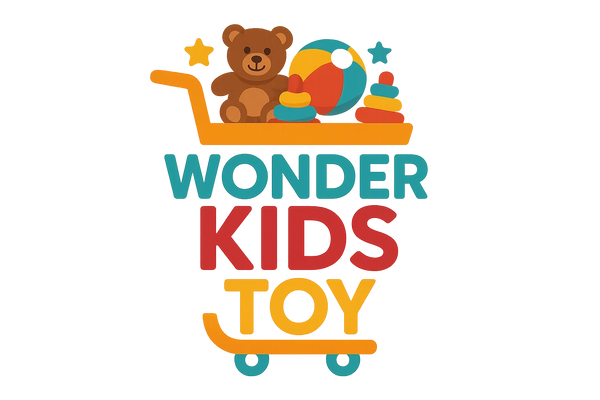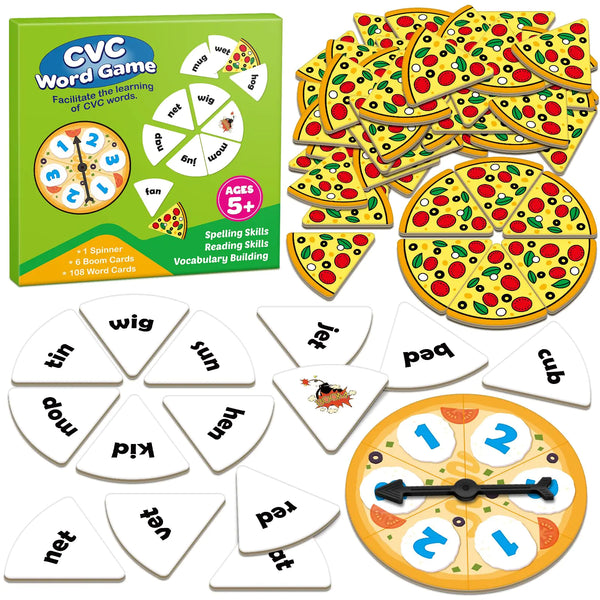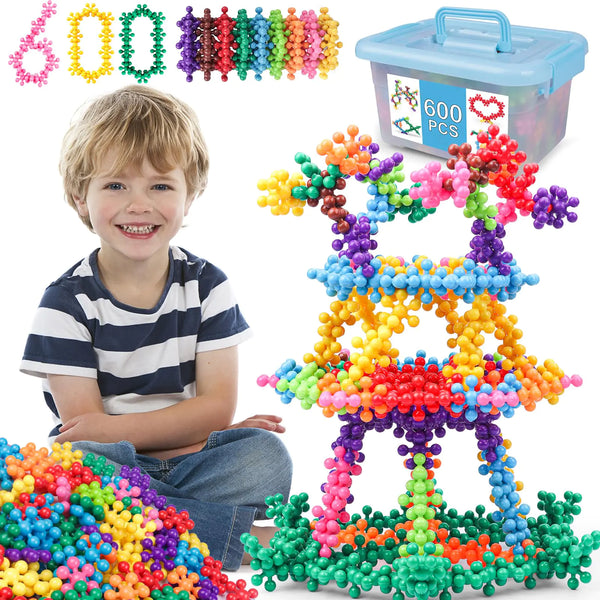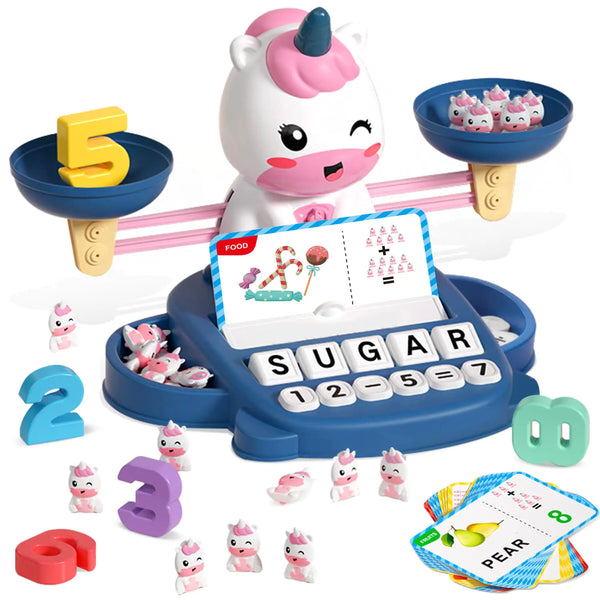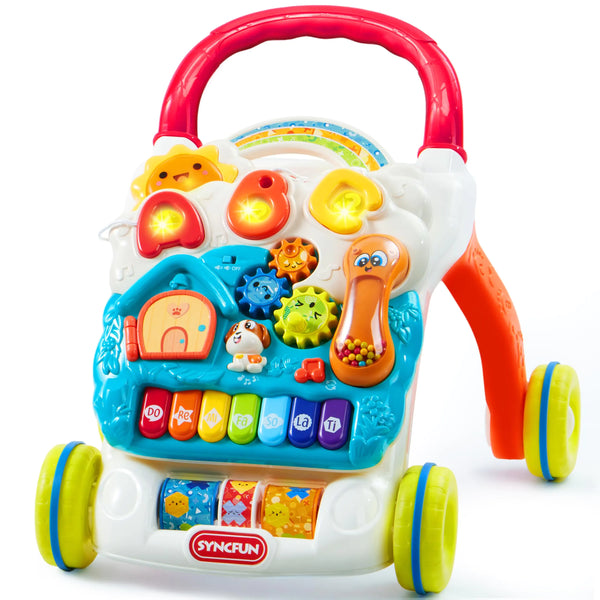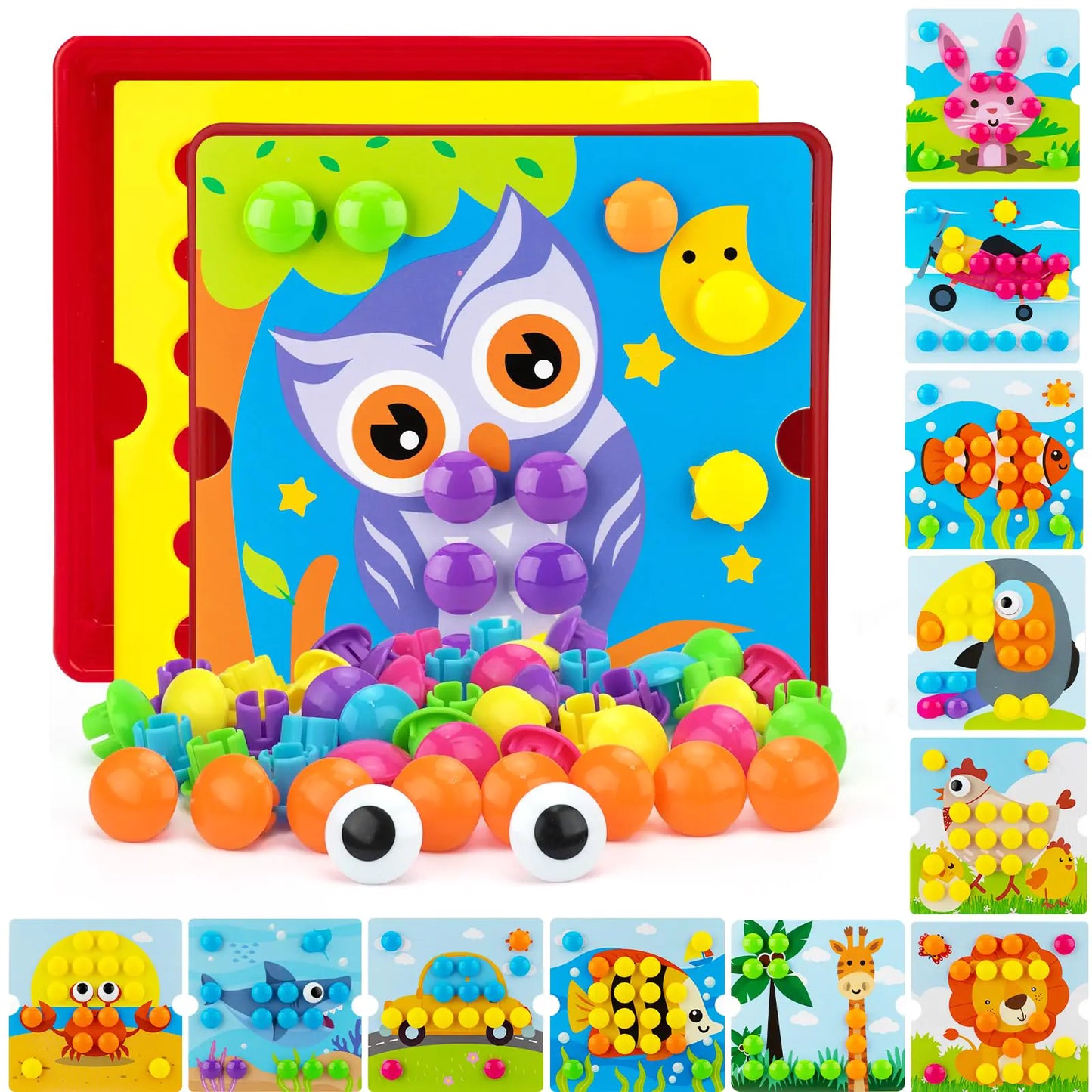Problem-solving is a crucial skill in both personal and professional life, and one fun and effective way to enhance it is through logic games. These games challenge the mind, foster critical thinking, and improve cognitive abilities. From classic puzzles like Sudoku to strategic board games and interactive video games, there's a vast array of logic games that can help sharpen your problem-solving skills. This article will explore various types of logic games and how they can benefit your mental agility.
Key Takeaways
- Logic games like Sudoku, chess, and riddles can significantly enhance logical reasoning and problem-solving skills.
- Regular practice with different types of puzzles and brain teasers can improve critical thinking and the ability to analyze patterns.
- Collaborative games such as escape rooms and cooperative board games encourage teamwork and the sharing of diverse problem-solving techniques.
- Mobile apps and online platforms offer convenient ways to practice logical reasoning and track progress through analytics.
- Adopting a growth mindset through gaming experiences can help one learn from mistakes and set achievable goals for continuous skill improvement.
Crack the Code with Logic Puzzles

Sudoku and Beyond: Number Puzzles
I've always been a fan of number puzzles, and I've found that they're fun and incredibly beneficial for developing problem-solving skills. Take Sudoku, for example. It's a game that challenges you to fill a grid so that every row, column, and box contains the digits 1 through 9 without repeating. It's a fantastic way to exercise your brain's logic and reasoning muscles.
Toys like Sudoku puzzles are more than just entertainment; they're tools that help kids learn the art of deduction and improve their concentration. And the best part? You can find these puzzles in various formats, from books to mobile apps, making them perfect for on-the-go brain training.
Here's a quick list of the brain benefits Sudoku offers:
- Enhances logical thinking
- Improves concentration
- Teaches patience and focus
- Provides a sense of accomplishment
Remember, the key to solving these puzzles is the process of elimination. Start with the obvious and work your way through the grid systematically. Happy puzzling!
Word Puzzles: Crosswords and Word Searches
I've always found that word puzzles like crosswords and word searches are more than fun ways to pass the time. They're a linguistic workout for the brain, challenging kids to expand their vocabulary and improve their spelling in a way that feels like play. Seeing how these puzzles can light up a child's language skills is fantastic.
- Crosswords encourage kids to think critically about word definitions and context.
- Word searches help with pattern recognition and can be a relaxing way to improve focus.
Encouraging your kids to dive into word puzzles can be a game-changer for their language development. It's a stealthy form of education where they learn new words and concepts without even realizing it.
And let's not forget the sense of accomplishment they feel when they find that last word or complete the puzzle. It's a confidence boost that keeps on giving!
Visual Brain Teasers: Spot the Difference and Picture Puzzles
I've always been a fan of those spot the difference games that I used to play in magazines as a kid. Now, as a parent, I see how these visual brain teasers are more than just a way to pass the time. They're a fantastic tool for enhancing my children's cognitive skills, especially their attention to detail. Puzzles and games improve cognitive skills in young minds, fostering creativity and problem-solving abilities.
When my kids play these games, they're not just looking for differences; they're learning to focus and analyze. This is a skill that will serve them well in all areas of life, from academics to everyday challenges.
Here's a quick list of benefits that visual brain teasers offer:
- Improved concentration
- Sharper attention to detail
- Development of patience
- A fun way to learn about patterns and sequences
Board games and puzzles also teach science and math concepts in a fun and engaging way. It's a win-win situation: my kids have a blast, and their brains get a workout!
Mastering the Art of Chess

Learning Chess Strategies
As a parent, I always seek ways to blend play with learning. Chess is a fantastic game that does just that, teaching kids far more than the rules of an ancient game. Strategic board games like chess boost brain power, critical thinking, and even math skills. Plus, they're a great way to teach patience and foresight.
- Understand the pieces: Each piece moves differently. Start by learning how the rook, knight, bishop, queen, king, and pawns move.
- Control the center: The center of the board is a power spot. Encourage your kids to control these squares.
- Think ahead: Chess requires planning. Teach your kids to think about their next move and what their opponent might do in response.
Chess isn't just about winning or losing; it's about learning to think strategically and make decisions under pressure. These are invaluable life skills that can help children excel in many areas, not just on the chessboard.
Playing Against Different Opponents
As a parent, I always seek ways to enrich my kids' learning experiences, and chess has been a fantastic tool. Playing against different opponents is not just about learning new strategies; it's about adapting to various play styles and thinking on your feet. Each opponent brings a unique challenge, and that's where the real growth happens.
- Playing against a defensive player might teach patience and the importance of strategic positioning.
- An aggressive opponent could offer lessons in risk assessment and quick decision-making.
- Games against more experienced players are invaluable for showing the importance of learning from defeat.
By encouraging our kids to play chess with a variety of opponents, we're not just helping them become better players, but we're also equipping them with versatile problem-solving skills that apply in the classroom and beyond. It's a win-win situation where they learn to be resilient, think critically, and enjoy the process of learning.
Chess Puzzles and Endgames
I've found that chess puzzles and endgames are not just a test of patience and skill but a real brain workout for kids. Solving these intricate problems can significantly enhance their strategic thinking and foresight. Each move on the chessboard teaches them to anticipate consequences and plan several steps ahead.
Benefits of Chess Puzzles for Kids:
- Improves memory and concentration
- Develops the ability to foresee and plan
- Sharpens problem-solving skills
- Encourages the understanding of cause and effect
Chess isn't just a game; it's a cleverly disguised lesson in critical thinking and decision-making.
Let's not forget that the satisfaction of solving a tough chess puzzle is a confidence booster like no other. I love to see this moment of pride in my own kids, and I bet you will, too. Chess is more than a game—it's a tool for life-long learning.
The World of Brain Teasers

Riddles to Stretch Your Mind
I've found that riddles are a fantastic way to get my kids' neurons firing. Solving riddles requires them to think critically and creatively, often leading to that satisfying 'aha!' moment when the answer clicks. It's not just about the fun; it's about building their problem-solving skills in a playful context.
- Matchstick puzzles
- Magic square puzzles
- Math riddles
- Easy riddles for kids
These are just a few riddles that can keep your kids engaged. And the best part? You can find many of these riddles for free online or in affordable puzzle books. It's a cost-effective way to enrich their minds!
Regular engagement with riddles and brain teasers can enhance analytical thinking and the ability to think outside the box.
Remember, the goal isn't to stump them but to challenge them just enough to spark curiosity and learning. So next time you're looking for an educational toy, consider a book of riddles or a puzzle game. It's a small investment in their cognitive development that can pay off big time!
Lateral Thinking Challenges
I've always enjoyed those brain teasers that make you look at problems sideways. You know, the kind that require a dash of creativity and imagination. Lateral thinking challenges are a fantastic way to encourage flexible thinking in kids. They're not just about finding the correct answer, but about discovering a new way of looking at the question.
- Encourages creative problem-solving
- Develops the ability to think outside the conventional box
- Enhances cognitive flexibility
By introducing lateral thinking games to our children, we're not just giving them a fun activity – we're equipping them with the tools to tackle real-world problems in innovative ways.
And let's not forget, these games are a blast! Whether it's a tricky riddle that stumps the whole family or a complex puzzle that has us scratching our heads, the satisfaction of finally cracking it is unbeatable. Plus, these toys that encourage children's problem-solving and critical thinking skills through hands-on activities like puzzles, building blocks, and educational toys are more than just playthings; they're the building blocks for a brighter future.
Classic Logic Problems
I've always been a fan of classic logic problems. They're like a gym for the brain, and I can't help but feel a sense of pride when my kids crack a tough one. These puzzles teach them to think critically and logically, invaluable skills in school and life. For instance, a simple riddle can spark a discussion on different approaches to a problem.
Italics aren't just for emphasis; they're a way to highlight the importance of logical thinking in our everyday lives. Here's a quick list of classic logic problems that are perfect for kids:
- The Missing Dollar Riddle: A great starter to get those gears turning.
- The Farmer, Fox, Chicken, and Grain Puzzle: Teaches the importance of strategy and forethought.
- The Monty Hall Problem: A fun way to introduce probability and decision-making.
Spending just 15-20 minutes a day on these puzzles can significantly improve a child's performance in school. And the best part? They're having so much fun, they don't even realize they're learning. It's a win-win for busy parents like us who want to ensure our kids are getting that extra edge.
Escape Room Games: The Ultimate Challenge

Solving Clues Under Pressure
There's something uniquely thrilling about cracking a challenging puzzle with the clock ticking down. It's not just about the satisfaction of solving the puzzle, but also about the skills your kids develop. Working under pressure is a critical life skill, and escape room games are a fantastic way to hone this ability in a fun and engaging way.
Escape room games challenge players to find clues, decode messages, and solve problems before time runs out. Here's why they're great for your kids:
- They encourage quick thinking and decision-making.
- Kids learn to manage stress and stay focused despite distractions.
- They foster a sense of urgency and the importance of time management.
By regularly engaging in these games, children not only have a blast but also build resilience and adaptability—qualities that will serve them well in all areas of life.
So next time you're looking for an educational toy that packs a punch, consider the dynamic world of escape room games. They're not just a race against the clock but a race towards developing sharper, quicker problem-solving skills.
Teamwork and Collaboration
Teamwork is a game-changer when it comes to enhancing our kids' problem-solving skills. I've seen firsthand how escape room games foster collaboration among players. Each child brings a unique perspective to the table, and together, they create a symphony of ideas that can crack even the toughest of puzzles. The beauty of these games lies in their ability to teach kids the importance of working together towards a common goal.
- Encourages communication and the sharing of ideas
- Teaches the value of different perspectives
- Develops leadership and social skills
In the heat of the moment, when the clock is ticking, kids learn to stay calm and listen to each other, recognizing that every team member has something valuable to contribute. This isn't just about having fun; it's about preparing them for real-world challenges where teamwork is often the key to success.
The Thrill of the 'Aha!' Moment
There's something truly magical about that moment when everything clicks into place. It's the eureka instance where the solution to a puzzle reveals itself, and I can't help but feel a rush of excitement. This 'aha!' moment is not just satisfying; it's a testament to the power of perseverance and critical thinking.
As a parent, I've seen how these moments of clarity can light up a child's face, and it's not just about the fun. It's about watching them grow, learn, and overcome challenges. Escape room games, in particular, offer a unique blend of pressure and pleasure that encourages kids to push their limits in a safe environment.
- They learn to think on their feet.
- Collaboration becomes second nature as they work with others to solve clues.
- The joy of solving a puzzle under pressure is a confidence booster like no other.
In these games, every clue solved and every puzzle unlocked is a step towards building a resilient and sharp mind. It's these small victories that teach our kids the value of patience and the rewards of hard work.
Board Games that Build Brains

Strategy Games like Risk and Settlers of Catan
I've found that strategy games like Risk and Settlers of Catan are not only a blast to play but also incredibly beneficial for kids' developing minds. These games require players to think critically, plan ahead, and adapt to new situations, all crucial problem-solving skills.
The beauty of these games lies in their complexity and strategic depth. Players must manage resources, negotiate with others, and anticipate opponents' moves. This mirrors real-life challenges, where strategic planning and resource management are key.
- Critical Thinking: Assessing the board and determining the best course of action.
- Planning: Deciding when and where to place resources for maximum benefit.
- Adaptability: Changing strategies in response to opponents' actions.
By engaging with these games, kids learn to be patient, to wait for the right moment, and to seize opportunities when they arise. It's a safe and fun way to practice decision-making and to understand the consequences of their actions without real-world risks.
Classic Games with a Twist
I've always believed that the best way to learn is through play, and classic games with a twist are a fantastic way to engage kids and adults in brain-building fun. Toys like pattern blocks and ThinkFun Gravity Maze enhance cognitive development through play by encouraging critical thinking, spatial awareness, and problem-solving skills. It's not just about having fun; these games are a stealthy way to boost those neurons!
Monopoly has been a household name for generations, but have you tried Monopoly Junior? It's a simplified version that's perfect for younger players. Here's a quick list of some other classic games that have been reimagined to challenge and entertain:
- Scrabble Junior: Expands vocabulary and spelling skills
- Clue Master Detective: Adds complexity for budding sleuths
- Risk Junior: Teaches strategic thinking with a pirate twist
Embracing these modern takes on classic games can lead to hours of entertainment and invaluable learning experiences. The joy of seeing your child's face light up when they solve a new puzzle or win a game is priceless. And let's be honest, it's pretty rewarding for us adults too!
Cooperative Board Games for Group Problem-Solving
Cooperative board games are a fantastic way for kids to learn the art of problem-solving together. Unlike competitive games, these cooperative experiences require players to work as a team to achieve a common goal. The beauty of these games lies in their ability to teach children about strategy, communication, and the importance of collective effort.
Here's why I think they're a must-have for any parent looking to boost their child's problem-solving skills:
- They encourage kids to articulate their thoughts and reasoning.
- Players learn to listen and value each other's input.
- They foster a sense of unity and shared accomplishment.
Remember, the goal isn't just to win, but to solve problems together and grow as a team.
And let's not forget the sheer variety of cooperative games out there. From defending a castle from invaders to repairing a spaceship, each game offers a unique adventure that requires different problem-solving approaches. This keeps the experience fresh and exciting, ensuring that kids remain engaged and eager to tackle new challenges.
Video Games: Fun with Logic

Puzzle-Platformers and Adventure Games
I believe puzzle-platformers and adventure games are a fantastic way to engage kids in problem-solving while they're having a blast. These games often combine the thrill of exploration with the satisfaction of solving puzzles, making them a hit with kids who love a good challenge. They're not just fun; they're a workout for the brain.
Puzzle-platformers, in particular, require players to think logically and spatially as they navigate through levels, figuring out how to overcome obstacles and progress. Here's why I think they're great for kids:
- They encourage critical thinking and planning.
- They improve hand-eye coordination and fine motor skills.
- They teach patience and perseverance, as some puzzles may take multiple attempts.
Remember, the key is to find games that are age-appropriate and offer a good balance between challenge and playability. Too easy, and they'll get bored; too hard, and they might get frustrated.
On the other hand, adventure games often have rich narratives that captivate kids' imaginations. They get to become part of a story, which can be incredibly motivating. Plus, these games usually involve a series of puzzles that contribute to the advancement of the plot, providing a sense of accomplishment with each puzzle solved.
Strategy and Simulation Games
As a parent, I'm always looking for ways to give my kids an edge in their cognitive development. That's where strategy and simulation games come into play. These games are not just about having fun; they're about teaching our kids the art of critical thinking and advanced planning. They learn to anticipate outcomes, manage resources, and understand the consequences of their decisions.
- Risk teaches them about strategic planning and consequences.
- SimCity allows them to manage a city and learn about resource allocation.
- Civilization introduces them to historical events and leadership decisions.
By integrating these games into playtime, we're setting the stage for our children to develop skills that are crucial for success in real life. They're not just playing; they're preparing for the future, one turn at a time.
Educational Video Games for All Ages
As a parent, I always look for ways to encourage learning through play. Educational video games are a fantastic resource for kids of all ages, offering a blend of entertainment and learning that can keep them engaged for hours. These games are designed to spark curiosity, promote active learning, and develop essential skills in a way that feels like pure fun.
Here's why I love educational video games for my kids:
- They're interactive, which means kids are not just passive recipients of information.
- Many games adapt to a child's learning pace, providing a personalized experience.
- They cover various subjects, from math and science to language arts and social studies.
Educational video games can be a powerful tool in developing a child's problem-solving and social skills, all while they're immersed in a captivating virtual world.
It's not just about the screen time; it's about making that time count. With the right educational games, we can turn playtime into an opportunity for growth and learning. And the best part? We can join in on the fun, helping build those precious family bonds while at it.
Mobile Apps to Train Your Brain on the Go

Daily Brain Training Routines
As a parent, I always look for ways to sharpen my kids' minds. That's where daily brain training routines come into play. Incorporating puzzle games into our daily routine has been a game-changer. These games are not just fun; they're a stealthy way to enhance problem-solving skills and cognitive functions.
- Morning: Kickstart the day with a quick word puzzle.
- Afternoon: Post-lunch, it's time for a number challenge, like Sudoku.
- Evening: Wind down with a visual brain teaser.
Consistency is key. Just a few minutes each day can lead to significant improvements over time.
And the best part? You don't need to invest in expensive materials. Many brain training games are available for free online or as apps. This means you can easily integrate them into your family's routine, no matter how hectic your schedule. It's a small step that can make a big difference in your child's development.
Logic Game Apps for Quick Sessions
As a parent, I always look for ways to incorporate extra brain-building into our daily routine. That's where logic game apps come in handy. They're perfect for those short bursts of downtime, whether we're waiting at the doctor's office or in the pickup line at school. These apps are a game-changer for busy families.
- Quick to play: Most logic games can be played in just a few minutes, making them ideal for short sessions.
- Variety of challenges: There's always something new to try from puzzles to brain teasers.
- Portable learning: Your kids can have educational fun as long as you have your phone.
The beauty of these apps is that they're not just entertaining; they're designed to improve critical thinking and problem-solving skills in a playful context.
And the best part? You can feel good about screen time because it's educational. So next time you're on the go, remember that a quick session with a logic game app can contribute to your child's cognitive development. It's a win-win in my book!
Tracking Progress with App Analytics
As a parent, I'm always looking for ways to ensure my kids are having fun and learning something valuable. That's where app analytics come into play. These nifty tools embedded in logic game apps are a game-changer. They allow us to see how much our kids improve in areas like problem-solving and critical thinking.
The beauty of app analytics is that they turn learning into a visible journey. We can track progress over time, celebrate achievements, and identify areas where extra practice might be needed. It's like having a digital report card that updates in real time!
- Performance Feedback: Immediate insights into strengths and weaknesses.
- Cumulative Scores: A running total that shows overall improvement.
- Personalized Tracking: Tailored reports that reflect individual learning paths.
By making use of app analytics, we're not just giving our kids a way to pass the time. We're investing in their educational growth and enjoying the peace of mind that comes with knowing they're on the right track.
Role-Playing Scenarios for Real-Life Problem-Solving

Improvisation and Quick Thinking
Regarding nurturing quick thinking in our kids, nothing beats the thrill of role-playing games. They're thrown into scenarios where the script is unwritten, and the outcomes are as unpredictable as they are exciting. This spontaneity is a playground for the mind, where they learn to think on their feet and improvise solutions to unexpected challenges.
- Role-playing games encourage kids to:
- Adapt to new situations quickly
- Develop creative solutions on the spot
- Enhance their communication skills
By fostering these skills, we're not just preparing them for the next game session, but for life itself. The ability to improvise and think quickly is invaluable, whether they're navigating social situations or tackling academic challenges.
And let's not forget the joy of watching our kids light up as they come up with a clever solution or a witty response. It's these moments that remind us of the power of play in developing sharp, adaptable minds.
Adopting Different Perspectives
As I delve into role-playing scenarios with my kids, I've noticed a remarkable transformation in their problem-solving abilities. By stepping into someone else's shoes, they learn to see problems from multiple angles, a critical skill in today's interconnected world. It's not just about finding the correct answer; it's about understanding the why behind it.
- Encourages empathy and understanding
- Fosters creativity and open-mindedness
- Enhances communication skills
When kids adopt different perspectives, they're not just playing; they're building a foundation for innovative thinking and effective decision-making.
And let's not forget the fun factor! Role-playing games are a blast, and watching my kids negotiate, strategize, and celebrate their successes is incredibly rewarding. It's a win-win: they're having a great time developing skills to serve them for a lifetime.
Learning from Role-Playing Game Challenges
I've found that role-playing games are a treasure trove for developing problem-solving skills in kids. By stepping into the shoes of different characters, they learn to think on their feet and consider multiple perspectives. It's not just about winning; it's about understanding the story and its characters.
Games like these encourage children to ask questions such as, 'What would you do if you were the monkey?' or 'How do you think Peter can make things better with his friend?' These scenarios push them to think critically and make decisions that can have different outcomes, teaching them that there's often more than one way to solve a problem.
By engaging with role-playing games, kids not only have fun but also build empathy and creativity, which are key components of effective problem-solving.
Here's a quick list of benefits that role-playing games offer:
- Enhances analytical thinking
- Boosts lateral thinking skills
- Encourages innovative problem-solving
- Improves understanding of varied viewpoints
- Exercises the 'problem-solving muscles' through creative play
Interactive Online Platforms for Logical Practice

Courses and Quizzes to Sharpen Your Skills
Online platforms offering courses and quizzes are a fantastic way to give your kids a leg up in their logical reasoning abilities. Websites like Khan Academy and Coursera are treasure troves of knowledge, with interactive exercises that make learning a blast. These platforms turn study time into playtime, and before you know it, your kids are acing quizzes like pros!
Remember, the key is to make learning fun and accessible, and these online resources do just that. With a variety of subjects at their fingertips, your kids can explore new areas of interest or deepen their understanding of familiar topics, all while building those all-important problem-solving skills.
Here's a quick list of benefits your kids can gain from online learning platforms:
- Flexibility to learn at their own pace
- A wide array of subjects to pique their curiosity
- Instant feedback to help them improve
- The ability to track progress and celebrate achievements
Virtual Simulations for Realistic Problem-Solving
I've seen firsthand how virtual simulations can transform how our kids approach problem-solving. These immersive experiences mimic real-life scenarios, allowing children to practice their spatial skills and critical thinking in a safe, controlled environment. The beauty of virtual simulations lies in their ability to engage young minds in complex tasks without the pressure of real-world consequences.
- Virtual reality (VR) technology
- Interactive and engaging
- Safe environment for experimentation
Using VR, kids can manipulate objects and solve puzzles that reflect real-world challenges. It's not just about having fun; it's about learning to navigate and interact with a digital world that is becoming increasingly relevant to their futures. And it's pretty cool to watch them solve a spatial puzzle in a virtual architectural design studio!
The key is to provide a balance of entertainment and education, ensuring that our children are equipped with the skills they need to succeed in an ever-evolving digital landscape.
The Benefits of Community Learning
I've found that diving into interactive online platforms for logical practice isn't just about sharpening my skills—it's about connecting with others who share my passion for learning. Collaborating with fellow learners can be incredibly rewarding. We exchange ideas, challenge each other's thinking, and grow together. It's like having a brain trust at your fingertips!
- Engaging in group projects that require collective problem-solving.
- Exchanging ideas and strategies with peers.
- Receiving feedback and guidance from instructors or group members.
By joining study groups or enrolling in courses, I've been exposed to a variety of perspectives that have broadened my understanding of problem-solving. It's a dynamic way to learn and apply logical reasoning in real-time.
And let's not forget the kids! Interactive puzzle apps and traditional puzzles blend seamlessly to enhance cognitive development and problem-solving skills in children, fostering a love for learning through play.
Embracing a Growth Mindset Through Games

Learning from Mistakes in Game Scenarios
As a parent, I've seen firsthand how games can be a powerful tool for teaching kids to learn from their mistakes. When my little ones play games like puzzles or chess, they often face challenges that require multiple attempts to overcome. It's in these moments that the magic happens. They start to understand that each error is a stepping stone to success, not a setback.
Persistence is key, and games provide a safe space for kids to experiment and fail without fear of judgment. Here's a simple list of benefits I've noticed:
- Improved critical thinking
- Enhanced problem-solving abilities
- Greater resilience in the face of challenges
- Development of a growth mindset
Embracing mistakes as learning opportunities is a life lesson that games teach beautifully. It's not just about getting to the right answer; it's about the journey of discovery that gets us there.
Setting Achievable Goals with Gaming Milestones
Setting clear, achievable goals is a game-changer for helping my kids develop their problem-solving skills. By breaking down more considerable challenges into smaller, manageable tasks, they stay motivated and experience a sense of accomplishment that fuels their desire to tackle the next challenge. Here's a simple approach I use:
- Identify the end goal: What is the ultimate skill or knowledge we aim for?
- Set milestones are like checkpoints that mark progress towards the end goal.
- Celebrate achievements: Each milestone reached is an opportunity for positive reinforcement.
- Adjust as needed: Flexibility is key. If a milestone seems too harsh, you can modify it.
Consistency is crucial. I aim for regular, short sessions with my kids, about 15-30 minutes each day. This keeps their minds sharp without overwhelming them.
Remember, the journey is just as important as the destination. By using educational games as a tool for setting and achieving goals, we're teaching our kids an invaluable life skill: how to learn. And that's a win in any parent's book!
The Role of Feedback in Skill Improvement
As I've been exploring the world of educational games for my kids, I've come to appreciate the power of feedback in skill development. Feedback is the compass that guides our learning journey, pointing out where we're on track and where we need to recalibrate. It's not just about correcting mistakes but celebrating progress and understanding the why behind successes and setbacks.
By integrating feedback into playtime, we can help our kids develop a keen sense of self-awareness and a growth mindset. They learn to see feedback not as criticism, but as valuable information that can help them improve.
Here's a simple breakdown of how feedback can enhance problem-solving skills:
- Identify areas for improvement: Like spotting the differences in a picture puzzle, feedback helps pinpoint where we can improve.
- Develop new strategies: Feedback can inspire new ways of thinking, like trying different construction methods with building toys.
- Predict outcomes: Understanding the consequences of actions, similar to anticipating moves in Tic-Tac-Toe, is a skill sharpened by feedback.
Remember, the goal isn't to create pressure but to foster an environment where learning is fun and mistakes are part of the process. After all, the best lessons often come from the most unexpected places.
Unlock the full potential of play with our innovative 3D puzzles at Wonder Kids Toy Store! These multifunctional educational toys are designed to foster a growth mindset, encouraging children to embrace challenges and celebrate achievements. Dive into a world of creativity, problem-solving, and fun. Don't wait to inspire your child's imagination - visit our website now and explore our latest collection of 3D puzzle wonders!
Wrapping It Up
Alright, folks, that's a wrap on boosting your problem-solving prowess with logic games! Remember, it's not just about nailing those brain teasers – it's about having a blast while you're at it. Whether you're a Sudoku savant, a chess champ, or a riddle rookie, keep pushing those mental muscles. And hey, with all those nifty apps and games at your fingertips, you can level up your logic skills anytime, anywhere. So give your brain a workout and watch those problem-solving skills soar. Keep playing, keep learning, and most importantly, keep having fun!
Frequently Asked Questions
How do logic puzzles like Sudoku enhance problem-solving skills?
Logic puzzles such as Sudoku challenge your brain to recognize patterns, use deductive reasoning, and apply problem-solving strategies, which can enhance your overall logical thinking abilities.
Can playing chess improve my cognitive abilities?
Yes, playing chess involves strategic thinking, planning, and foresight, which can significantly improve cognitive abilities such as memory, concentration, and problem-solving skills.
What are some benefits of solving riddles and brain teasers?
Solving riddles and brain teasers can improve analytical thinking, encourage creative thought processes, and develop the ability to think outside the box, essential for complex problem-solving.
Are escape room games effective for team-building and problem-solving?
Escape room games are highly effective for team-building. They require collaboration, communication, and collective problem-solving under time pressure, fostering teamwork and quick thinking.
How do strategy board games like Risk contribute to brain development?
Strategy board games like Risk involve planning, critical decision-making, and adaptability, which contribute to brain development by enhancing cognitive flexibility and strategic thinking skills.
Can video games be educational and help with logic skills?
Educational video games are designed to be fun and engaging while teaching problem-solving and logic skills. They often include challenges that require logical reasoning and strategy to progress.
How can mobile apps help me practice problem-solving on the go?
Mobile apps offer a range of puzzle and logic games you can play anywhere, anytime. They're convenient for daily practice and often track your progress to help you improve over time.
What role does a growth mindset play in enhancing problem-solving skills?
A growth mindset encourages embracing challenges, learning from mistakes, and persisting through difficulties, which are crucial for developing and enhancing problem-solving skills.

